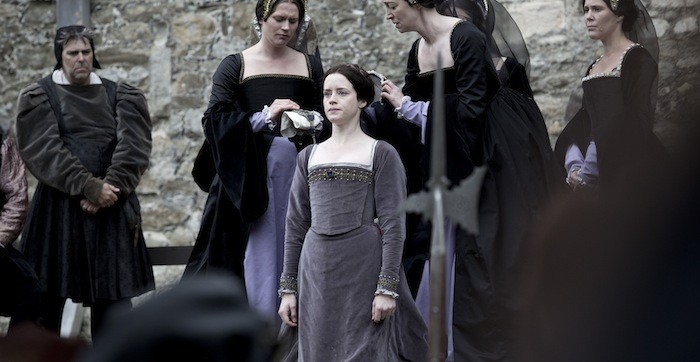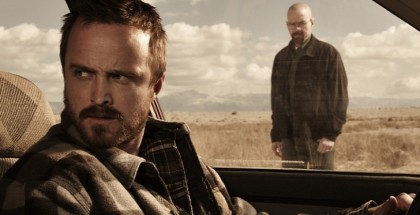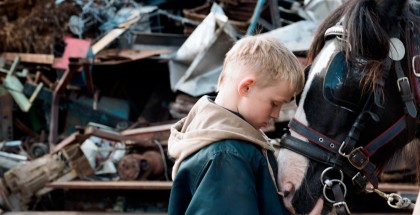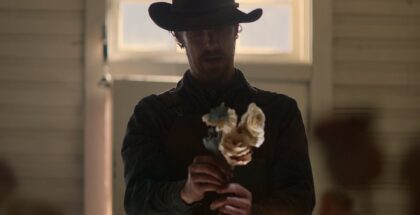UK TV review: Wolf Hall Episode 6
Review Overview
Heads
10Heart
10History
10David Farnor | On 01, Mar 2015
Oh, Anne. We knew you didn’t have the head for the job. The inevitability of history has hung over Wolf Hall from the beginning, giving everything a doomed sense of dramatic irony. Claire Foy has sunk her teeth into it, relishing her queen’s rise with catty confidence, only to fall apart, as her execution approaches.
Foy begins her final, heartbreaking hour of screen life taunting her lovers in court – a minute’s silence for lute player Mark Smeaton – with a reckless air that’s only heightened by her wide-eyed expression. “I think you should be dropped from a great height,” snipes Lady Rochford, “like your dog.” Anne smacks her one; confirmation, if it were needed, that the regal air once assumed by Henry’s bride has made a swift departure.
A tawdry list of lovers soon comes to light, courtesy of her sister-in-law, ranging from good old Smeaton to even the queen’s brother – and Cromwell runs with the apparent evidence all the way to a sham trial. Damian Lewis’ Henry, meanwhile, is horribly blunt over the whole thing, moving on to Miss Seymour like a contestant on the Generation Game eyeing up the cuddly toy about to appear on the conveyor belt.
“I suppose it’s some sort of test… isn’t it?” Foy asks Cromwell, desperately, as he appears to console her. While Anne steals the show, though, the fascination lies – as ever – with Mark Rylance’s manipulator. He has been masterful throughout this whole series, conveying so much with little more than a pair of raised eyebrows and a wrinkled grimace; the nuanced presence of a theatre actor multiplied by the close-up of a camera. And so we find ourselves scrutinising him for any sign of reaction to Anne’s impending death: The joy of revenge against Wolsey’s previous insulters, now tied to Anne’s sinking ship? The satisfaction of a cunning plan well executed? The regret of sending a woman to an early grave?
His sad eyes seem to suggest the latter, as he bustles around checking that the axe-man will be quick and gentle about his business. And yet there are the reminders, still, that he is no hero, despite any sympathy we might harbour. “We’re know you’re a Lutheran,” says one, speaking of the future and the church. “Me?” replies Cromwell with a smirk. “I’m a banker.”
It’s typical of Peter Straughan’s smart script, condensing history into six short – yet dense – episodes, while subtly highlighting its relevance to today. Like our dispenser of justice, who tiptoes across the gallows with no shoes on, all those candlelit scenes and handheld shots quietly sneak up on you to culminate in something that feels astonishingly present. The most striking blow comes as Cromwell and Anne share a fateful exchange halfway through. “I promoted you. I am responsible for your rise,” she declares, noting that it is easy to unmake someone’s power. “I agree,” he retorts.
Only as Henry embraces his right hand man do we really see the Cromwell lurking beneath the surface: a man as submissive and vulnerable as everyone else in this real life game of thrones. Power is transient, Wolf Hall concludes – and his story is already set in stone. The king smiles triumphantly; a chillingly rare display of happiness in this dark drama. As Thomas gazes over Henry’s shoulder, you can almost hear the executioner warming up his blade, a downfall that will undoubtedly make for a gripping third novel – and a magnificent piece of television.
Wolf Hall is available on BritBox as part of a £5.99 monthly subscription.






















